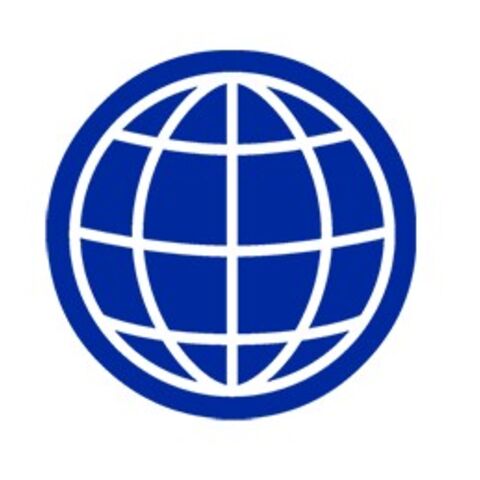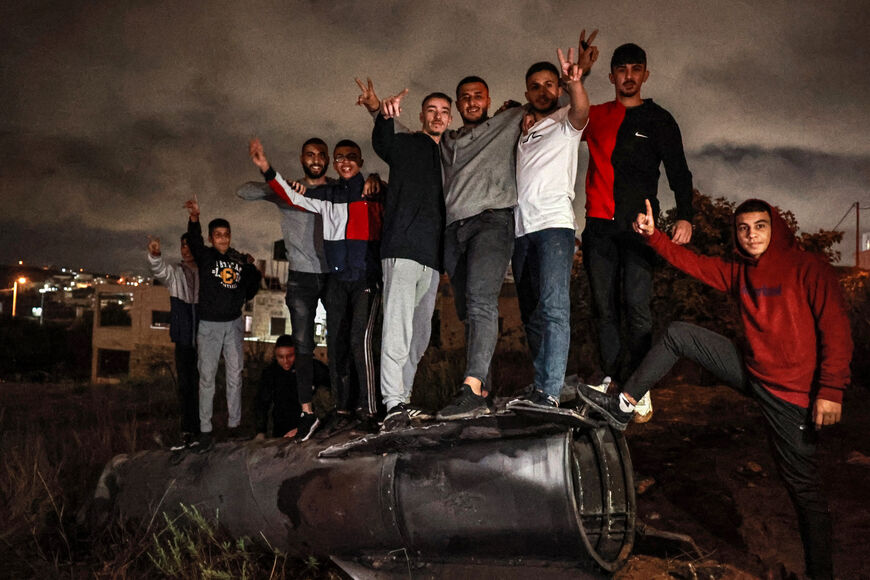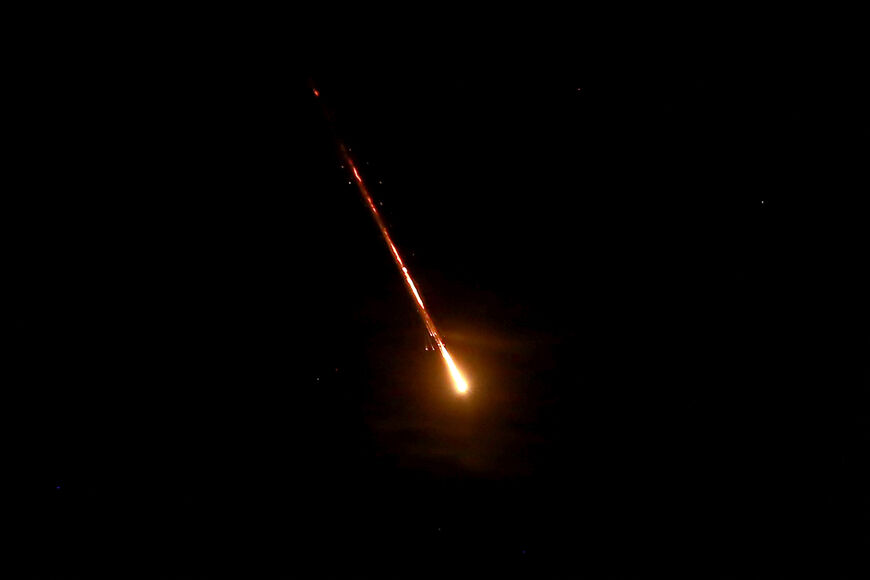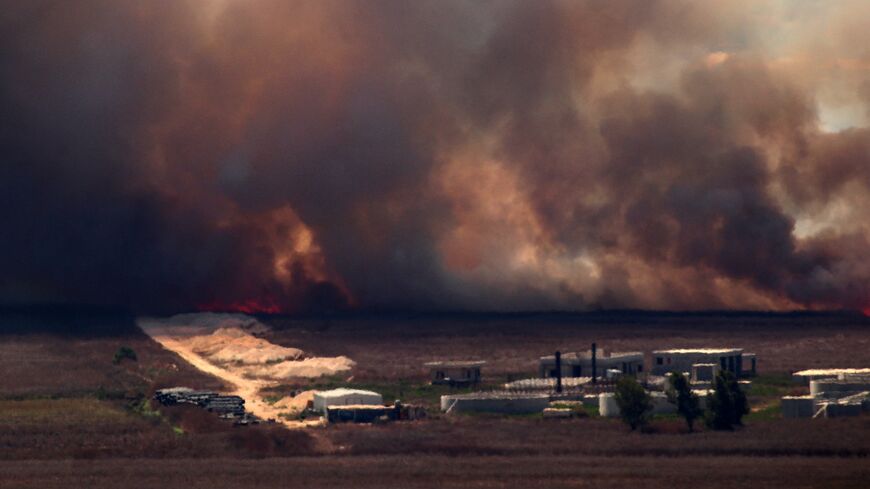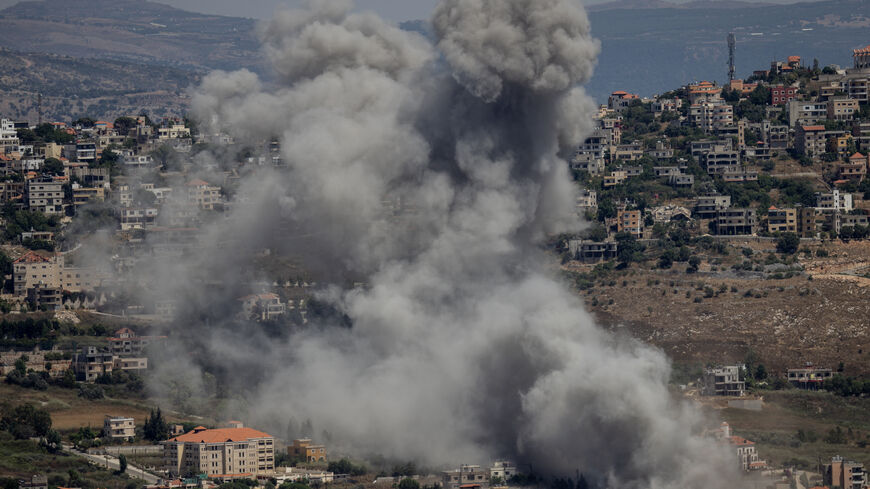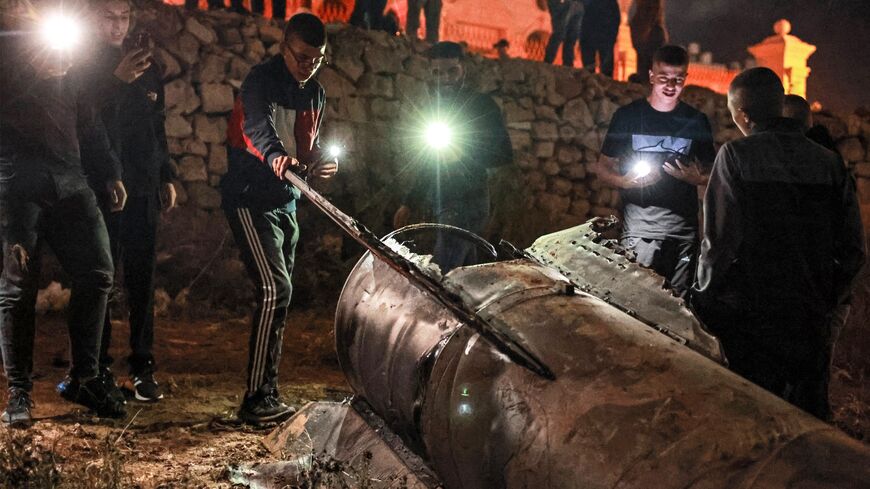Israel vows to retaliate against Iran after missile attack
Iran launched missiles toward Israel on Tuesday, just four days after Israeli strikes in Beirut killed the leader of the Iran-backed Hezbollah movement, Hassan Nasrallah.
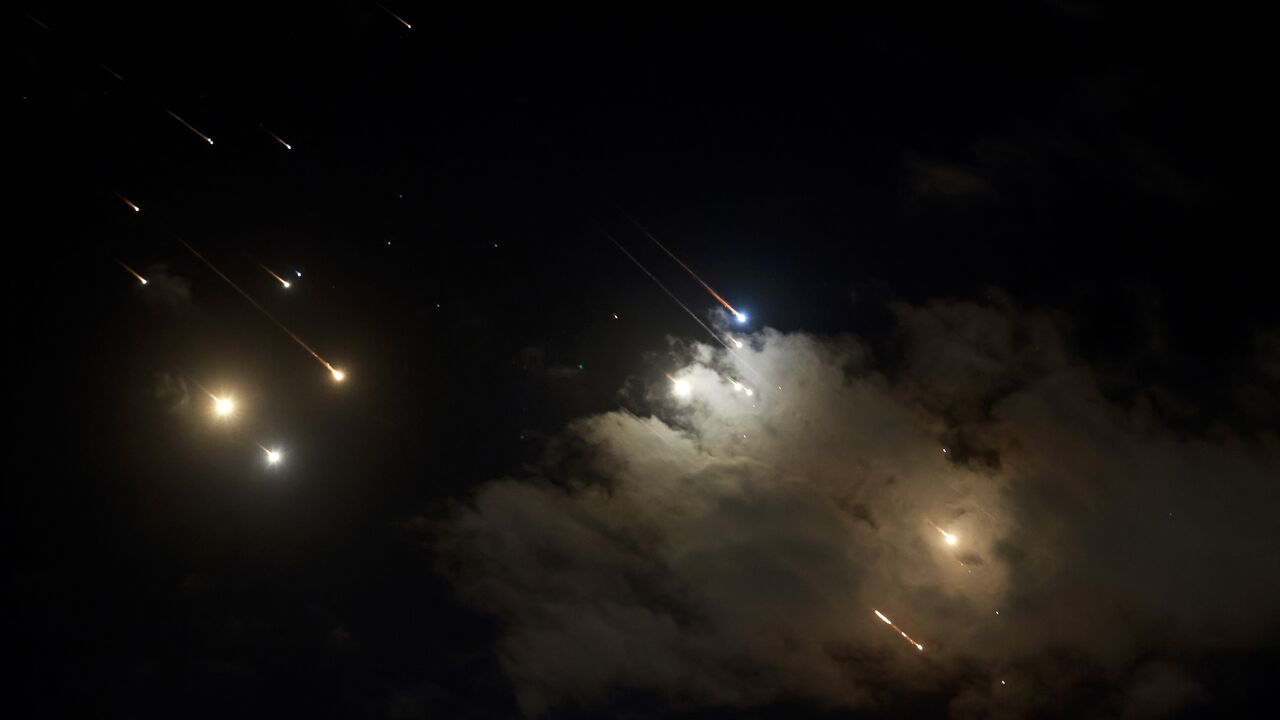
Israel vowed to retaliate following an Iranian missile attack on Tuesday that left two Israelis injured and comes amid a high level of escalation in the region.
"This attack will have repercussions. We have plans, and we will operate at the place and time we decide," said Israeli military spokesman Rear Adm. Daniel Hagari.
Iran launched nearly 200 missiles toward Israel on Tuesday, just four days after Israeli strikes in Beirut killed the leader of the Iran-backed Hezbollah movement, Hassan Nasrallah. The Pentagon said Iran’s missile attack on Tuesday was about twice the size of the April missile attack, according to an initial assessment. Then, Iran fired a salvo of ballistic missiles at Israel in retaliation for an Israeli strike on the Iranian Consulate in Syria.
Palestinian youths celebrate as they stand atop a fallen projectile after Iran launched a barrage of missiles at Israel in response to the killings of Lebanese Hezbollah leader Nasrallah and other Iran-backed militants, in Ramallah in the occupied West Bank on October 1, 2024. (ZAIN JAAFAR/AFP via Getty Images)
At least two Israeli were injured, the authorities said, as Palestinian media reported on one death in the West Bank from a missile that fell in the occupied Palestinian territory. Videos shared on social media showed other missiles falling in Jordan.
How it happened: The Israeli military posted on X at 7:35 p.m. (12:35 p.m. ET) local Jerusalem time, urging "all Israeli civilians [to go to] bomb shelters as rockets from Iran are fired at Israel." This is the second time Iran has launched an attack against Israel in less than six months.
Sirens were sounding across Israel, including in the Tel Aviv area and other cities, as 102 missiles were fired from Iran. Kan, Israel's public broadcaster, reported that at least one missile fell in Tel Aviv, but no further details are available at the moment. Israel's Ben Gurion Airport has been shut down.
Follow our live blog for more coverage
In a statement, Iran's Islamic Revolutionary Guard Corps said the missile attack on Israel was in response to the "martyrdom" of Hezbollah leader Hassan Nasrallah, Hamas politburo leader Ismail Haniyeh and IRGC Gen. Abbas Nilforushan. The IRGC added that Israel will bear a "heavy" response if it retaliates to the attack, the affiliated Tasnim news agency reported.
Haniyeh was killed by Israel in Tehran in late July, while Nasrallah and Nilforushan were killed in an Israeli strike in Lebanon last week.
At 1:05 p.m. ET (8:35 p.m. Jerusalem time), the Iranian Mission to the United Nations in New York said the attack "has been duly carried out." Tehran’s retaliation “has been duly carried out,” the mission said in a statement posted on X, warning that an Israeli counterattack would be met with “a subsequent and crushing response.”
Multiple casualties being reported in Jordan due to fallen missile debris. pic.twitter.com/iy5O6HfMeU
— Aurora Intel (@AuroraIntel) October 1, 2024
Jordan's civil aviation authority temporarily suspended air traffic, while the armed forces called on citizens to remain in their homes, citing "hundreds of Iranian missiles being launched at Israel," the public broadcaster Al-Mamlaka reported.
The United States warned earlier on Tuesday that it had indications Iran planned to launch an imminent ballistic missile attack.
"We are actively supporting defensive preparations to defend Israel against this attack," a senior White House official said. "A direct military attack from Iran against Israel will carry severe consequences for Iran," the senior official warned.
Israel has been bracing for possible retaliation from Iran over the killings of Nasrallah, Haniyeh and Nilforushan. A wave of Israeli-blamed pager and walkie-talkie explosions last month also killed members of the militant group and wounded Iran's envoy to Lebanon.
In a Sunday statement, Iran’s Foreign Minister Abbas Araghchi vowed that Nilforushan's killing “will not go unanswered.”
On July 31, Hamas' political leader, Ismail Haniyeh, was assassinated in an explosion in Tehran. Hamas released a statement saying that he had been killed by a "Zionist" airstrike, yet later reports emerged claiming a remotely detonated explosive had killed the longtime Hamas leader while he was staying in an Iranian government guest house.
Know more: The attack comes amid escalating regional tensions and just a day after Israel launched an invasion into southern Lebanon in what the Israeli military said was a "limited" operation to destroy Hezbollah infrastructure.
More than 1,000 people have been killed and over 6,000 injured by Israeli strikes in Lebanon since Sept. 16, according to the Lebanese Health Ministry. Within Lebanon, 200,000 people are displaced, while over 100,000 people have fled to Syria.
This is a developing story and will continue to be updated.


